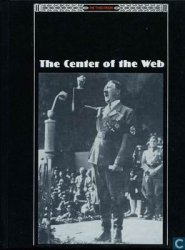By the Spring of 1941 Great Britain had emerged from the
threat of annihilation, but she had by no means gained the upper
hand.
When Mussolini invaded Greece in October 1940, Britain was
unable to man a Balkan front. A British expeditionary force
landed on the Greek mainland, but it was not strong enough to
save the Greeks. When it was withdrawn to Africa, however, it
was powerful enough to halt an Axis offensive.
In April 1941 the Germans invaded Yugoslavia on the pretext
that she had violated the 'Tripartite Pact', and then pressed on to
relieve the Italians in Greece. The British were forced hastily
to re-embark. A daring German parachute operation rooted
them out of Crete. King George had no place to go but Cairo.
Throughout the continent, the Germans expropriated what
wealth and equipment they found. Belief in ultimate German
victory induced many citizens in the occupied spates, including
the Vichy Government, to 'collaborate' with the Germans. The
imbalance between the two camps may not have increased in
Britain's disfavour, but they continued to be unevenly matched.
England had not won the war. No one knew how or when shewould.
Prospects remained uncertain until 21 June 1941, when
the Wehrmacht invaded Soviet Russia.
The attack caught the Soviet heads of state, especially Stalin,
by surprise. They had been careful to adhere to the letter ol the
Russo-German Pact, while openly pursuing their own interests.
At the same time, they had proceeded with territorial acquisition.
They absorbed the Baltic states and Lithuania. They took part
ol Bessarabia and Bukovina from Rumania, and they occupied
part of Finland. These manoeuvres displeased Hitler, who had
not abandoned the great plan flaunted in Mein Kampfof following
the path ol the Teutonic Knights to colonize the vast plain
inhabited by the Slavs, whom he regarded as inferiors. His plan
also had the merit of annihilating the bolshevik heresy.
The huge European force which Hitler hurled into his crusade
comprised Finns, Hungarians, Slovaks, Rumanians, and Italians
as well as volunteer contingents raised from occupied countries,
including a few thousand Frenchmen. There were 205 divisions
of infantry and 30 armoured divisions which marshalled 4,000
tanks. These ground forces were supported by 3,000 aircraft.
Three groups of armies were pointed at three targets - Leningrad,
Moscow and the Ukraine, which offered rich supplies of
wheat and iron. It remained to be seen whether these troops
were sufficient to occupy and hold the vast expanse of Soviet
Russia.
It appeared that they might be for the first six months. The
Red Army was large but disquietingly weak and ill-prepared for
modern warfare. Stalin's purges had decimated the high command.
Tanks had not been organized in large units, while Soviet
fighter planes were no faster than German bombers. Fortifications
were also weak. The Wehrmacht advanced three hundred
miles in eighteen days of fighting and by 2 September, Leningrad
was within range of enemy fire. At Kiev, which fell on 25
September, 600,000 prisoners were taken. By 2 October Moscow
was under attack.
The Russians yielded but they did not give way. They provided
for future contingencies by dismantling and transporting hundreds
of factories and thousands of workers up to and across the
Urals. They brought in reinforcements from Siberia and reorganized
their high command, placing Zhukov in charge of
Moscow defences. By winter, Leningrad was under siege but it
did not capitulate. The Germans were forced back from Moscow.
This, their last attempt at lightning war, did not bring them
victory. It had become a war of attrition and appeared likely to
drag on. By spring 1942, German offensive loi ces were still
stronger than the Russian, but their manoevres were restricted
to objectives along the Volga and in the' Caucasus. Again the
Russians yielded, but they retreated inch by inch. They had
learned how to wage war and they had new equipment. In addition,
the German policy of systematic terror in the occupied
territories discouraged collaboration and prevented the formation
oi anti-Soviet splinter groups.




 World History
World History









